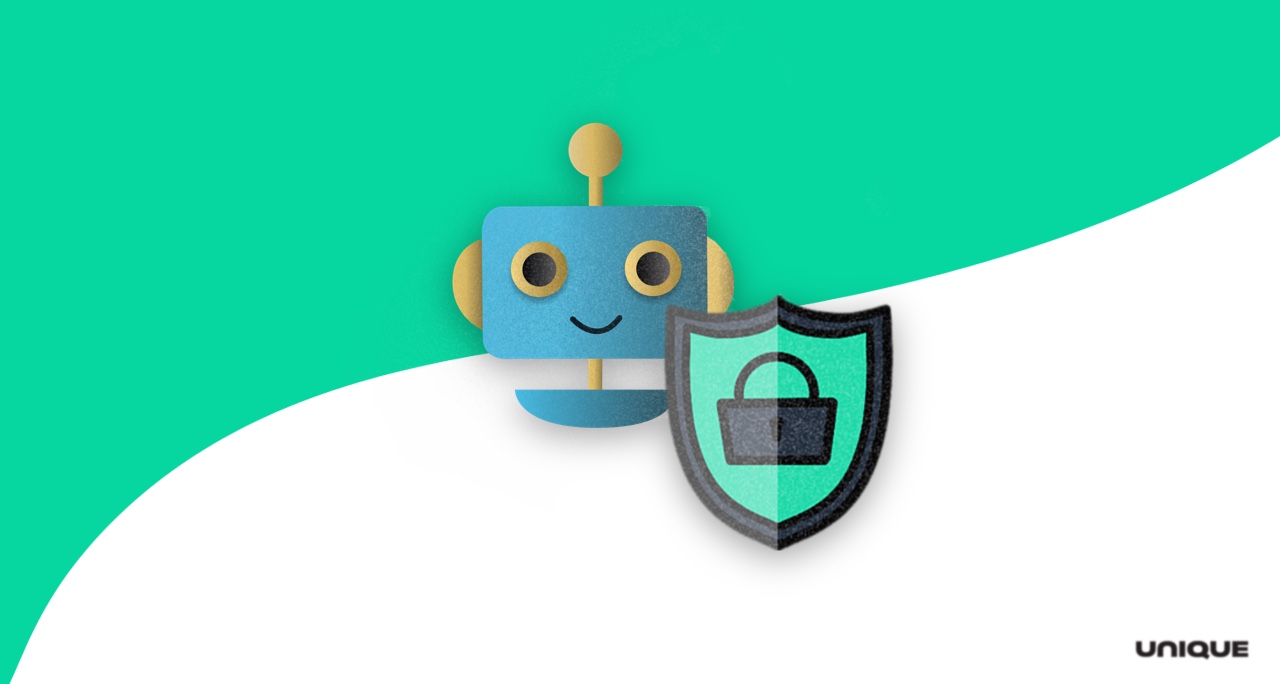In the recent months, the news about ChatGPT spread like a wildfire across the globe. Everybody seems to be obsessed with it and its counterparts like Dall-E, Bing and Bard. However, in a rush to get the answer to the trickiest questions possible, we often forget about the #1 rule of conduct when it comes to any kind of new technology - restricted use of personal information.
Let’s take a real-life example when this rules got overlooked or simply ignored:
Samsung's employees recently fed sensitive information to ChatGPT. How did it happen? Samsung’s semiconductor division has allowed engineers to use ChatGPT to check source code. What they forgot, however, is that anything you share with ChatGPT is kept and used to further train the model.

Experts warn that such reckless sharing of personal or company information can violate GDPR compliance. For instance, Italy has already banned the technology over privacy concerns.
While ChatGPT is certainly altering the way we work and interact with machines to perform our day-to-day activities, the growing concern around data privacy and security cannot be ignored.
In this article, we'll explore the security risks associated with ChatGPT and the importance of taking security measures when working with this technology.
What is ChatGPT?
Unless you live under a rock, you’ve heard A LOT about ChatGPT over the past few months. But let us remind you about the technology behind this chatbot interface.
ChatGPT, a large language model trained by OpenAI, is a powerful tool that uses machine learning to generate human-like responses to text-based prompts. It is able to do this because it has been trained on vast amounts of text data, such as books, articles, and websites. The program uses this data to understand the patterns and structure of language, and then it can generate its own responses based on what it has learned.
When you talk to ChatGPT, it will analyze what you say and try to come up with a response that makes sense in the context of the conversation. It can even remember what you have said before and use that information to make the conversation more natural.
Security risks associated with ChatGPT
Apart from a “looming” AI rebellion, there are two major risks associated with security when using ChatGPT:
1. One of the biggest risks associated with ChatGPT is the potential for data leaks and breaches. If ChatGPT is fed private or company data, there is a risk that the data could be leaked or accessed by unauthorized individuals. Companies should be careful not to feed ChatGPT with any sensitive or confidential information.
2. ChatGPT can be used maliciously to generate fake news, impersonate individuals, or spread misinformation.
That’s why every expert warns to never feed ChatGPT anything that could potentially compromise you or your company.
Security measures to consider when working with ChatGPT
To mitigate the risks associated with using ChatGPT, you should consider implementing a couple of security measures:
Encryption
Encryption of data is an essential part of protecting sensitive information. All data used by ChatGPT should be encrypted, and access to the encryption keys should be strictly controlled.
Access Control
Limiting access to ChatGPT to only those who require it is an important step in securing company data. Access should be granted only to trusted individuals and monitored to ensure that it is being used appropriately.
Data Anonymization
Anonymizing data used by ChatGPT can help to protect personal information and prevent the identification of individuals. This can be done by removing or masking any identifiable information from the data before it is used by ChatGPT.
Regular Auditing
Regular auditing of ChatGPT's use and access can help to identify any potential security issues. Audits should be conducted by trusted individuals who have the knowledge and experience to identify security risks.
To Wrap Things Up
When it comes to using ChatGPT and other language models, we've got a big responsibility to make sure we're protecting personal and company data. But don't worry, it’s not that difficult to lessen the risks by putting some security measures in place. That means controlling who has access, keeping things encrypted, making data anonymous, and checking up on it regularly. If we don't take these precautions, things can get messy - losing people's trust, getting in legal or financial trouble, and even causing harm. So let's take this seriously and do it right!



